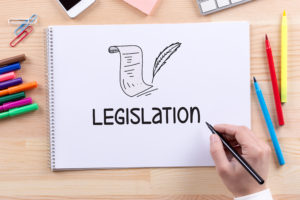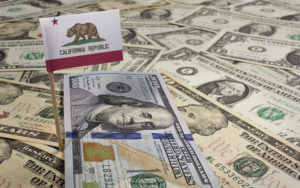Congress' New Online Sales Tax Bill: What You Need to Know

As we wrote a couple of weeks ago, the online sales tax debate is far from over. Although the Supreme Court ruled that states can impose an internet sales tax, Congress can still legislate on the issue. And it looks like it will. Representatives introduced a bill designed to guide sales tax collection requirements for businesses selling across state lines.
About the Online Sales Tax Bill
Introduced by a bipartisan group of House Representatives, the Online Sales Simplicity and Small Business Relief Act was created to provide clarity amidst the confusing aftermath of the Wayfair decision.
As U.S. Representative Sensenbrenner explained in a statement, “This bipartisan legislation reins in the taxation free-for-all created by the Supreme Court’s ruling…online sellers need clarity and stability in the sales tax arena. Our bill will protect small businesses and internet entrepreneurs from excessive regulatory burdens.”Read more
The Crazy Tax Laws Regarding Food!

We write a lot of blogs! We’ve been writing a lot of blogs about the recent U.S. Supreme Court decision in South Dakota v. Wayfair and how companies selling goods online will be subject to much more compliance in upcoming months and years. But today, we decided to change it up and talk about something near and dear to everyone- food!
In most states throughout the country, consumers shopping at a supermarket don’t pay state sales tax on their bread and butter, but would pay sales taxes on a hot prepared turkey dinner. If they pick up a Hershey’s bar in the checkout line, is likely to be taxed, but if they pick up a Twix bar instead, it might be be exempt.
What Are The Next Steps Regarding Internet Sales Tax?

It's been a few months since the Supreme Court's Wayfair v. South Dakota decision made it possible for states to begin imposing an internet sales tax, but there are still a lot of questions swirling around - especially for small businesses owners.
U.S. House Judiciary Committee Hearing: Internet Sales Tax
Digital Commerce 360 reports that following the Court's decision the U.S. House Judiciary Committee heard testimony, "Spanning the spectrum of opinion on the potential fallout of the U.S. Supreme Court’s decision regarding online sales tax." Eight citizens from a range of backgrounds provided expert insight on how the Wayfair decision would impact states and businesses across the country.
Ultimately, the testimony encouraged Congress to develop internet sales tax legislation to provide clarity as retailers attempt to figure out how to comply with each states' various tax laws.
While Congress struggles to come to a consensus on what this type of law would look like, states are enacting their own online sales tax laws. This leaves business owners scrambling as they try to figure out what to do.Read more
FOCUS ON NORTH DAKOTA

This month we travel to the Great Plains state of North Dakota. It is the 19th largest in area, the 4th smallest by population, and also the 4th most sparely populated of the 50 states. North Dakota is situated near the middle of North America with a stone marker in Rugby, North Dakota marking the “Geographic Center of the North American Continent.”
The western half of the state consists of the hilly Great Plains as well as the northern part of the Badlands, which are to the west of the Missouri River. The region is abundant in fossil fuels including natural gas, crude oil and lignite coal. The Missouri River forms Lake Sakakawea, the third largest artificial lake in the U.S.
FOCUS ON INDIANA

This month we travel to the Crossroads of America, the Midwest state of Indiana. It is known for its farmland and renowned auto race, the Indianapolis 500, held at the Indianapolis motor speedway. In the capital, Indianapolis, theatres and galleries line Massachusetts Avenue. The city’s downtown is home to the iconic Soldiers and Sailors Monument, the Canal Walk promenade and the Indianapolis Museum of Art and its wide-ranging collections.
The state includes two natural regions of the United States: the Central Lowlands and the Interior Low Plateau. The Till Plains make up the northern and central regions of Indiana. Much of its appearance is a result of elements left behind by glaciers. Central Indiana is mainly flat with some low rolling hills (except where rivers cut deep valleys through the plain, like at the Wabash River and Sugar Creek) and soil composed of glacial sands, gravel and clay, which results in exceptional farmland. Northern Indiana is similar, except for the presence of higher and hillier terminal moraines and hundreds of Kettle lakes.
U.S. SUPREME COURT SALES TAX DECISION (WAYFAIR)- Q&A PART 2

If you’re a frequent reader of this blog (or you’ve just been scanning headlines), you know that the hot news in the sales tax world is the recent U.S. Supreme Court’s June 2018 ruling in South Dakota v. Wayfair, Inc. This ruling overturned the high court’s 1992 decision in Quill (Quill Corp v. North Dakota, 504 U.S. 298 (1992)), which established a physical presence standard before a state could enforce sales tax collection responsibilities on a seller. With the Wayfair decision, the Supreme Court effectively ruled that another indicator of sufficient presence in a state is “economic nexus”. Essentially that means that a certain dollar volume or number of transactions in a state can create nexus and therefore a responsibility on the seller to collect and remit sales tax. In the South Dakota statute, those amounts are SD sales in excess of $100,000 or 200 transactions in the state within a year.
In the last month, we’ve received many questions from our clients and referral partners about what this really means for them and what they should be doing next. We addressed a few of those questions in a previous blog and here, we tackle a few more.
More Amnesty in the Wake of the Wayfair Decision!

There always seems to be an amnesty program going on somewhere. We recently reported on an amnesty program in Texas and other states are jumping on the bandwagon as well. The recent Wayfair Supreme Court decision has shed light on the requirements to collect sales tax and as a by-product more companies are focusing on getting into compliance. States are encouraging this behavior by administering amnesty programs.
When businesses become delinquent on their taxes, they often accrue penalties and interest with the states. During these amnesty programs, states may waive penalties and/or interest. States administer amnesty programs because they want companies doing business in their state to be compliant and in the process collect the revenue!
U.S. SUPREME COURT SALES TAX DECISION (WAYFAIR)- Q&A
 The hot news in the sales tax world within the last week is, of course, the U.S. Supreme Court’s 6/21/18 ruling in South Dakota v. Wayfair, Inc. This ruling overturned the high court’s 1992 decision in Quill (Quill Corp v. North Dakota, 504 U.S. 298 (1992)), which set a standard requiring substantial physical presence before a state could enforce the sales tax collection responsibilities on a seller. It’s a standard that we’ve lived with for over 25 years. But in the decision for the majority in Wayfair Justice Anthony Kennedy, who served on the Court in 1992 and at the time voted in favor of the Quill decision, now indicated that “the internet’s prevalence and power have changed the dynamics of the national economy” since 1992’s ruling, and that for many reasons, it was time to revisit and overturn the ruling.
The hot news in the sales tax world within the last week is, of course, the U.S. Supreme Court’s 6/21/18 ruling in South Dakota v. Wayfair, Inc. This ruling overturned the high court’s 1992 decision in Quill (Quill Corp v. North Dakota, 504 U.S. 298 (1992)), which set a standard requiring substantial physical presence before a state could enforce the sales tax collection responsibilities on a seller. It’s a standard that we’ve lived with for over 25 years. But in the decision for the majority in Wayfair Justice Anthony Kennedy, who served on the Court in 1992 and at the time voted in favor of the Quill decision, now indicated that “the internet’s prevalence and power have changed the dynamics of the national economy” since 1992’s ruling, and that for many reasons, it was time to revisit and overturn the ruling.
So, what does it mean for our clients? In this blog, we address a few of questions that have come up for us in the past few days.
An Update On Recent California Taxes: What You Need To Know

Have you been keeping up with California’s recent news regarding taxes? From cannabis to tap water and gas, California’s various tax legislation would impact all residents. Here’s a recap of each one.
California’s Taxes on Gas
Senate Bill 1 increased gas taxes by 12 cents per gallon, diesel fuel 20 cents per gallon and raised vehicle fees. The legislation was approved by both the Legislature and the governor back in April and is projected to raise $5.4 billion a year for road and transit projects. While the tax revenue is earmarked for important work within the state, 51 percent of registered voters report they'd repeal the tax if it were placed on the statewide ballot in November.Read more
FOCUS ON RHODE ISLAND

This month we travel north east to The Ocean State of Rhode Island. It is nicknamed the Ocean State due to its large number of ocean front beaches, large bays and inlets that amount to about 14% of its total area. The state is mostly flat with no real mountains.
Rhode Island has two distinct natural regions. Eastern Rhode Island contains the lowlands of the Narragansett Bay, while Western Rhode Island forms part of the New England Upland. The state’s forests are part of the Northeastern coastal forests ecoregion.


















